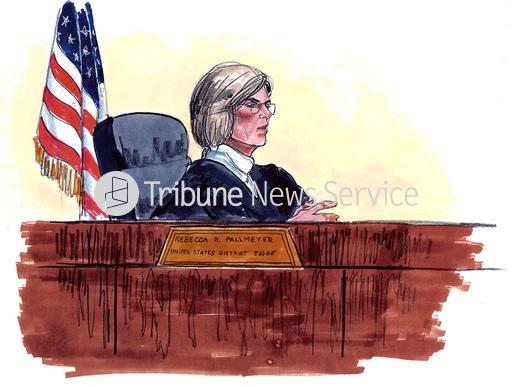Supreme Court Justice Antonin Scalia firmly believes that the current Living Constitution is rendering our constitution useless due to change in policy being based purely on individual self-interest that will ultimately determine the constitution to consist of statues and practices of what the majority wants it to be.
Scalia begin his essay by explaining his interpretation style of the constitution to be that of an “Originalist” (Judges, Professors, Lawyers). “Our manner of interpreting the Constitution is to begin with the text, and to give that text the meaning that it bore when it was adopted by the people,” Scalia said. Scalia explains that though the originalist perspective is in the minority now it very well used to be considered the orthodox approach.
According to Scalia, prior to the previous fifty years, judges needed to distort the constitution by lying during cases in order to reach a verdict. This is no longer the case today under the evolving constitution which started when, quote, “the court began giving terms in the text of the constitution meaning they didn’t have when they were adopted.” This exemplifies this notion by explaining that since the freedom of speech given to American citizens by the first amendment wasn’t specified it allowed congress in numerous court cases in the past to impose restriction on speech. Scalia further explained that before judges can be able to reinterpret the constitution to make new laws there must be first be Substantive Due Process.
When first adopted, the courts described substantive due process to be limited but those limitations became eliminated as it has become up to the courts to determine what is covered in due process; Scalia gives an example to this by noting how, prior to the previous twenty years, having an abortion was determined to be a criminal act but the courts found, through due process, the right to abortion. Ultimately, the courts having the power to reinterpret the constitution has undoubtedly helped alter the constitution. With this new ability at their disposal it has increasingly become more difficult for someone confirmed into the Court of Appeals as people, quote, “look principally for people who agree with us, the majority as to whether there ought to be this right, that right, and that other right… we [they] want to pick people that would write the new constitution that we would want,” Scalia said. He explains that by selecting people to write a constitution, rather than people giving us the fair meaning of one that has been democratically adopted, the constitution will mean only what the majority wants it to which deprives the constitution of its principle utility: The Bill of Rights that was devised to protect people against the majority.
According to Scalia, changing societal standards must primarily be taken into account when ruling on the constitutionality on a statute or practice being that public opinion will simply cause the majority to make up the constitution as they see fit because they will only choose to elect judges whose interests mirror theirs. He portrayed these sentiments when telling how nowadays it’s become difficult for a judge to be elected into the Court of Appeals because the senators only want to elect the judges with their same views in order to help construct the constitution into what they want it to be. Also, in this story Scalia describes his unanimous vote by a panel to allow him into the Court of Appeal that occurred nineteen years prior to this essay.
“I was known at the time to be fairly conservative…but still, I was known to be a good lawyer, an honest man – someone who could read a text and give its fair meaning -, had judicial impartiality and so forth,” Scalia said. In essence, Scalia was known not to be selfish and driven by self-interest and was believed to be able to be impartial and fair as a judge. These qualities, however, do not reflect the senate within the governing system as the senators, who nominee candidates to the Supreme Court, represent the majority and they will select justices who will devise a constitution that the majority wants. Scalia feels that the same impartial values and unselfishness that allowed him to get his job are the change in societal standards that are needed to be placed within the governing system; selfish desires need to be put aside so deserving judges can be allowed to read the constitution’s text and give it a fair meaning towards what statutes and policies should be placed into society and not what the majority wants it to be.
I believe that Breyer’s approach of active liberty would result in better outcomes than that of the approach of the Living Constitution. This is primarily because active liberty cautions against judicial, legislative, or administrative involvement and strongly advocates for a national discussion among everybody such as scientists, engineers, businessmen, the media, and average citizens whose lives are to be affected by the policy in question in order to create a possible consensus whereas the Living Constitution is simply set up for the majority to rule. Also, during his essay, Scalia disproved the preconceived notion among citizens that the Living Constitution imposes flexibility through an example pertaining to abortion.
“You want a right to abortion – create it the way most rights are created in a democratic society, persuade your fellow citizens it’s a good idea and enact it…You want the opposite – persuade them the other way… that’s flexibility. But to read either result into the Constitution isn’t flexibility, it is to produce what the constitution is designed to produce – rigidity.” Scalia said.
In my humble estimation, everyone being content (flexibility) with a statute or practice isn’t the Living Constitution’s obligation; the Living Constitution’s role is to create laws deemed worthy by the majority opinion.


